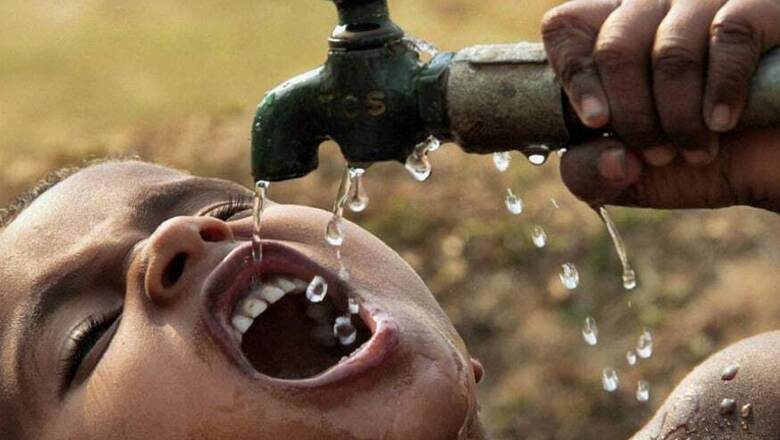
views
Gandhinagar: The Gujarat government is bringing in a new legislation in the ongoing session of the state Assembly providing for metering of domestic water usage across the State.
The Gujarat Domestic Water Supply Protection Bill, 2019, reviewed by the IANS, seeks to monitor as well as curb the illegal use as well as misuse of water in residences and other buildings for domestic purposes. The violators of the provisions will be considered as criminal offenders, according to the Bill.
According to various provisions of the bill, all the local authorities such as municipal corporations, municipalities, the panchayats and the Gujarat Water Supply and Sewerage Board (GWSSB), which distribute water to households for domestic use will have to install the meters at their source of water as well as the end-users and a special annual water audit will have to be maintained and submitted to the state government.
Explaining the reasons for the legislation, the Bill states that: "It is important that discipline is maintained in the operation of water distribution and water reaches the end-users in a regular manner within the distribution system".
It said water needs to be distributed evenly within a village or a city in order to reach the end-users properly.
"Unfortunately, certain water users draw water illegally from the pipelines or overdraw water if they have a valid connection. There are also instances, wherein water distribution systems have either been contaminated, damaged or tampered with, affecting regular water supply. In such a scenario, water availability to the tail-end users reduces and they are deprived of water security," it said.
"This situation calls for urgent and strong measures to curb this kind of practices, wherein normal operation of water distribution system is disturbed and water security is jeopardized. It is therefore proposed to enact a law for protection of domestic water supply," the proposed Bill states.
The local authorities will have to fix water charges for different categories such as residential connections, group residential connections, other than residential use, and others. The charges will also vary according to the input water pipes' diameter size.
At the same time, the Bill also provides for a mechanism to reserve water for domestic purposes.
Any person who damages, tampers with or illegally draws water, is sought to be punished so as to deter the people from doing such activities. The Act provides for penalties and recovery of loss suffered by the water distribution authorities on account of illegal drawal of water to prevent such activities, states the proposed Bill.
It provides that whoever damages, destroys, defaces such water metering systems shall be punishable with a maximum imprisonment of up to two years or a fine up to Rs 1 lakh or equal to the amount of the damage (whichever is higher) or both.
The person tampering with the water distribution system of the authorities to disturb the working, tampering of valves, meters will be punished with a maximum imprisonment of six months or a fine of Rs 50,000 or both.
Unauthorised connections, which draw water from distribution system pipelines will be fined a maximum of Rs 3,000 for a regular residential connection, Rs 5,000 for a bigger residential connection or other non residential use connection with regular pipeline input.
In the case of violations for the group residential connections for bigger than regular connection size, the offence will invite an imprisonment of up to one month or a fine of maximum Rs 20,000 or both. The maximum penalty will be an imprisonment of up to three months or fine of maximum Rs 100,000 or both in case of other than residential connections with bigger than regular connection size.
The authorities will appoint assessing officers who will decide the offence committed. Persons aggrieved by such assessing officer's decision can apply to the appellate officer appointed by the authority.
Persons aggrieved by the appellate officers' decision could then approach the Water Appellate Authority, constituted specially under this Bill. This Authority will have the same powers as that of a civil court. Also, no civil court will have the jurisdiction over the decisions taken by the assessing officers, the appellate officers or the Water Appellate Authority.


















Comments
0 comment